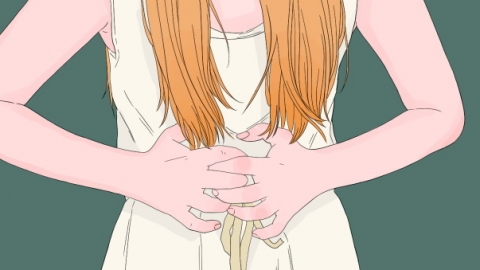Why does diarrhea occur after eating lychees?
In general, diarrhea after eating lychee may be caused by excessive consumption, unhygienic food, allergic reactions, indigestion, gastroenteritis, and other reasons. Symptomatic treatment through general therapy, medication, and other methods is needed. If discomfort occurs, it is recommended to seek medical attention promptly and undergo corresponding treatment under a doctor's guidance. A detailed explanation is as follows:

1. Excessive Consumption
Lychee has a delicious taste, but consuming large amounts at once may increase the burden on the gastrointestinal tract, leading to impaired water absorption in the gastrointestinal tract and resulting in diarrhea, which may be accompanied by symptoms of indigestion such as bloating and abdominal pain. It is recommended to stop eating lychees and ensure adequate hydration to prevent dehydration.
2. Unhygienic Food
If lychees are not properly cleaned before consumption or if the fruit itself has spoiled, bacteria or viruses on the surface may enter the gastrointestinal tract after ingestion, irritating the mucous membranes and increasing gastrointestinal secretion, thus causing diarrhea, which may be accompanied by infectious symptoms such as nausea, vomiting, and fever. It is recommended to maintain dietary hygiene and avoid consuming contaminated food.
3. Allergic Reaction
Proteins, polyphenols, and other components in lychees may act as allergens. In individuals with allergic constitutions, the immune system may mistakenly identify these substances as harmful after consuming lychees, releasing inflammatory mediators like histamine, causing intestinal inflammation and resulting in diarrhea, potentially accompanied by rashes, itching, difficulty breathing, and other symptoms. It is recommended to use medications such as cetirizine hydrochloride tablets, loratadine tablets, or promethazine hydrochloride tablets under a doctor's guidance for treatment.
4. Indigestion
Indigestion may be caused by irregular eating habits, insufficient gastrointestinal motility, or inadequate secretion of digestive enzymes. Patients with indigestion experience slowed gastrointestinal peristalsis and reduced secretion of digestive fluids, causing lychees to remain in the gastrointestinal tract for an extended period and be broken down by bacteria into harmful substances, thereby triggering diarrhea, which may also be accompanied by bloating, belching, early satiety, and other symptoms. It is recommended to follow medical advice to use medications such as Baohe Pills, Jianwei Xiaoshi Tablets, or Simotang Oral Liquid to alleviate symptoms.
5. Gastroenteritis
Certain components in lychees may irritate the gastrointestinal mucosa, making the gastric mucosa more sensitive and potentially triggering gastroenteritis. Patients with existing inflammation or damage to the gastrointestinal mucosa are more susceptible to irritation, which may lead to diarrhea, possibly accompanied by abdominal pain, nausea, vomiting, and other symptoms. It is recommended to use gastric mucosal protectants such as omeprazole enteric-coated capsules, cimetidine capsules, or famotidine tablets under a doctor's guidance.
It is advised to temporarily stop eating lychees and other raw, cold, greasy, or spicy foods. Choose bland and easily digestible foods in daily meals, such as millet porridge and soft noodles, to reduce the burden on the gastrointestinal tract.




